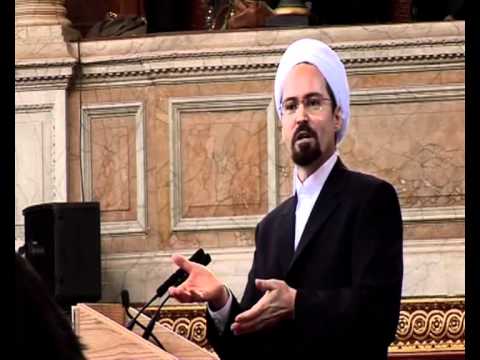Prophet Muhammad (saw) said, in the hadith narrated by Abu Sa’eed al-Khudri (ra): “You will certainly follow the ways of those who came before you, span by span, cubit by cubit, until even if they were to enter a lizard’s hole, you would follow them.” We said, “O Messenger of Allah, (do you mean) the Jews and Christians?” He said, “Who else?!”
In 2002, the Catholic Church witnessed one of the worse sex scandals it has seen in decades, when high-ranking members of the Church, including one of the Cardinals appointed by the Pope, were found to be guilty of covering up for religious leaders accused of sexual abuse. Cardinal Bernard Law, along with other bishops of the Boston Archdiocese, allegedly reassigned priests known to have committed sexual abuse from parish to parish for years, secretly conjuring settlements and paying off victims for their silence. Discovery of decade-old records revealing unanswered complaints and allegations of sexual abuse by Church officials led to the deposition of several bishops and the resignation of Cardinal Law.
In the West, the average Muslim practices Islam without any of the hierarchy and governing bodies present in the Catholic Church. Our religious leaders or imams are generally scholars hired by a mosque’s Board of Directors or owner to teach, lead the prayer, and keep the community involved and united, through regular classes and family potlucks. When strong allegations of sexual abuse are raised against a Muslim religious scholar (and are kept outside the legal system), he is often asked to resign as a means to kill the “fitna,” and made to leave the community quietly. Unfortunately, his resignation warrants only one thing: a position elsewhere, given the need for imams in communities all over the Unites States.
A few years ago, a religious scholar teaching at an Islamic school in New Jersey sexually molested a student. The family did not press charges to protect the privacy of the child and his chances of being married upon reaching adulthood. The school’s board asked the scholar to resign. Given his highly sought-out credentials (hafiz of Qur’an, Ph.D. in Islamic Studies, command of the English language, etc.), he was soon offered a position at another Islamic school in a different state. Sadly, when the latter school contacted the former to ask for a reference, the administrative staff felt it was their duty to protect the scholar’s honor by covering his faults. They simply commented on his teaching skills and ability to engage students in class. The scholar got the position, and one year later, was charged for sexually molesting another child at the new school.
Many Muslims do not speak up or take legal action against community leaders who have taken advantage of their position. This is because they face societal pressures similar to corporate whistle-blowers: condemnation from other community members for sullying the community’s reputation by “airing dirty laundry” or for using the “kuffar” legal system to take action. Shamefully, our communities encourage the same secrecy and deception that the Church did in allowing priests to go from parish to parish committing abominable acts; our covering of sexual predation and other moral corruption results in these leaders having the freedom to move about “unnoticed” from state to state, mosque to mosque, and perpetuate their deviant behaviors while leaving a trail of abused sisters, or worse yet, children, in their wake.
Unfortunately, the reverence that some Muslims feel towards the scholars of the ummah can be a strong deterrent in fulfilling our obligation to forbid evil. Anas ibn Malik (ra) narrated that the Prophet (saw) was asked: “‘O Messenger of Allah, (what will happen) when we stop enjoining good and forbidding evil?’ He said: ‘When what happened to the Israelites happens among you: when fornication becomes widespread among your leaders, knowledge is in the hands of the lowest of you, and power passes into the hands of the least of you.’”
Muslims must recognize that although religious scholars are to be honored and respected for the knowledge they have been entrusted with, they are not infallible nor above the law. It is not enough for scholars to learn and teach Qur’an: they must live by it. Our communities need to hold our religious scholars accountable for their transgressions, instead of indifferently turning a blind eye and deaf ear to grave allegations against such scholars, for fear of temporarily leaving the mosque without leadership or religious guidance.
The Prophet (saw) said: “The night I was carried to heaven, I passed by several people whose lips were being cut off with scissors of fire. On asking them who they were, they replied: ‘We were learned men who were wont to enjoin good but do it not, and forbid evil but commit it ourselves.’”
Indeed, Muslim scholars must bear the responsibility of the knowledge they possess and impart. No doubt, our scholars are human beings with imperfections who are bound to sin. Yet Allah (swt) has made it clear in the Qur’an that the ones that know and the ones that do not know are not equal. To sin in ignorance is one thing, but to abuse scholarship and authority by intentionally transgressing Allah’s bounds, and harming others in the process, is a totally different one. Muslims must not hesitate to apply the full extent of the law on corrupt scholars known for their excesses, be it shari’ah or secular. Silence should not be an option.
(Photo: Hishaam Siddiqi)
Enith Morillo is a scientist by profession and a writer by passion. Her writing is featured in the newly published “Many Poetic Voices, One Faith” and “Many Voices, One Faith II: Islamic Fiction Stories.” She is also the media liaison for the grass-root movement Healthy Families Initiative, a program dealing with domestic abuse in the Rhode Island Muslim community. You can visit her Umrah blog or contact her via email at enithcm [at] gmail.com.





yes